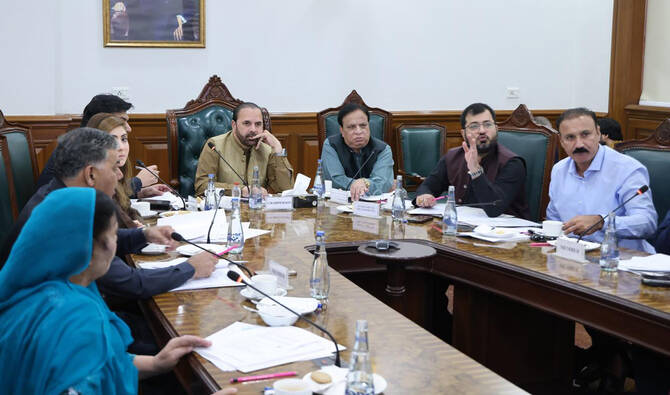ISLAMABAD: The government in Pakistan’s most populous Punjab province recently finalized a bill to control the sale and distribution of acid to ensure protection for women, following numerous acid attacks targeting women over the years.
Acid attacks, which disfigure and often blind their overwhelmingly female victims, have long been used to settle personal or family scores in Pakistan, with hundreds of cases reported each year. These attacks are often driven by motives such as rejected marriage proposals, domestic disputes or family feuds.
Between 2007 and 2016, Pakistan recorded 1,108 acid attacks affecting 1,375 individuals. The issue peaked in the early 2000s, with a surge in reported cases between 1999 and 2005 — 494 attacks were reported in 2002 and 417 in 2003.
The proposed legislation titled “The Punjab Acid Control Act 2025” aims to prevent such attacks, ensure accountability and create a safer environment for women across the province by tightening control over the sale and purchase of the product.
“It is necessary to regulate and control the business of acid in Punjab by providing a comprehensive mechanism and for the matters ancillary thereto and connected therewith,” a copy of the bill seen by Arab News on Tuesday said.
The bill has been prepared by Punjab Women Protection Authority chairperson and lawmaker Hina Parvez Butt.
The draft legislation prohibits people from engaging in the sale and purchase of acid without a license. It also bars the sale of acid to anyone under 18 years of age and mentions 30 different types of acid.
According to the draft law, anyone already involved in the acid business before the new law comes into effect must apply for a license within 30 days of when the law is implemented. They need to submit an application with a specific form and pay a fee set by the authorities.
The license will also state the maximum amount of acid the license holder is allowed to keep at any given time.
Any importer or acid manufacturer already licensed under the current laws will need to register under the new law and maintain a record of their acid-related business, which must be submitted to the licensing authority within one month after the end of each year.
The law mandates that an acid container must clearly display visible information printed on it which includes the name and type of acid, the name, address and license number of the seller, the volume and quantity of acid, manufacturing and expiry dates, and a warning label with the words “DANGEROUS/CORROSIVE” in red along with other safety precautions.
The punishment for violating the provisions of the law includes imprisonment of up to three years and a fine of up to $1,780 (Rs500,000), with an additional three-month prison time if the fine is not paid.
The bill highlighted that offenses committed under this law are cognizable, non-bailable, non-compoundable and will be tried in court.
The draft law states that a person will face imprisonment for two to five years, along with a fine ranging from $712 to $3,560 (Rs200,000 to Rs1 million) if the acid business causes harm to any person or property.
There has been a significant decline in acid attacks in Pakistan since a legislation criminalizing acid and burn violence was passed in December 2011, according to a 2017 report by the Acid Survivors Foundation.
However, recent years have seen a marked decrease: in 2014, 153 acid attacks were reported with 210 victims, followed by 69 in 2015 and 73 in 2016. The downward trend continued in 2017, with only 39 incidents reported.
















